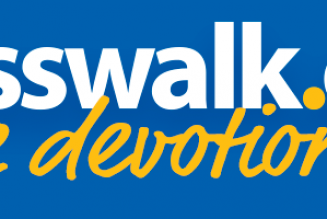
There’s way too much Christian negativity surrounding technology. All we seem to think and read about are the dangers and difficulties of the digital revolution.
But how about some balance? How about recognizing and appreciating the amazing technological gifts that God has blessed our generation with?
I recently linked to How Technology Made me a Better Mom, and I thought, “Why don’t Christians write pieces like this?” Then, “Why don’t I write a piece like this?” So here goes with “How technology made me a better Christian.”
Affordable resources
I would not have half the books I have without the advent of Logos, Ages Software, eBooks, Kindle Daily Deals, etc. How impoverished my life and ministry would be without these resources! Then add all the blogs, websites, online sermons and videos, podcasts, and it’s almost too much of a good thing. Where do you start? Enter reliable online curators like Tim Challies and Justin Taylor to help us find the best treasure.
Searchable books
When I began my ministry in the mid-nineties, I started an elaborate and time-intensive index card reference system for everything I read in books, magazines, journals, etc. Yet even that often failed me as I stood in front of my tiny library and wondered, “Where did I read that quote? Which book deals with this verse or doctrine?” Now I can search Logos, my Kindle, Evernote, Dropbox, etc. and find them with a few clicks. This has not only saved me oodles of time, but has enriched my life and ministry immeasurably.
Economy and clarity of words
I got through Glasgow University and my first year of Seminary without a computer. I wasn’t a Luddite. It’s just that personal computers were still quite rare (and expensive). My first computer was a Packard Bell and it had a 200mb hard-drive! Yet even that made a huge different to the sermons I was beginning to preach. I still have the ten or so handwritten sermon notes of my first efforts. I remember there were times when I wanted to cut, edit, or re-arrange a section and yet just didn’t have the time to write everything else out again. My PC’s cut-and-paste made me a better preacher by helping me compress, clarify, and simplify my language. I so much wish John Owen had lived in our day.
Current comment
Until the advent of the Internet, if there was some moral crisis or worrying spiritual development in the church or nation, it would take a month or two for Christian periodicals to cover it and publish on it with comment and guidance. By then, the issue was often long gone and the debate had passed. Now we have the best minds and writers in Christendom able to comment and guide us through extremely treacherous moral and spiritual times and trends, and to do so virtually in real time!
Christian fellowship
Yes, I believe Christian fellowship has increased rather than decreased with the advent of the Internet. Through blogs and websites, “ordinary” Christians are sharing their faith and their spiritual experiences in ways that bless and encourage hundreds and sometimes thousands of other Christians – and non-Christians too. So much that would have been kept private and untold is now public and shared. Isolated Christians, Christian seniors, Christians with special needs, Christian homemakers, etc., have access to other Christians in unprecedented ways. And it’s not all digital. Most of my online friendships have developed into face-to-face friendships. Christians find it easier to open up and share in their local churches too because they’ve been “practicing” online.
Christian diversity
One of the richest aspects of online life is learning about other Christians from other backgrounds and cultures. Pre-Internet I might have seen them from a distance, and judged adversely on the basis of outward appearance. But as I read their blogs, listen to their sermons, and interact with them on Twitter and Facebook, etc., I hear and see their hearts for Christ and I’m better able to see past outward differences, love them, and be immeasurably enriched by them and their witness.
Outreach and Mission
It’s incredible how easy and inexpensive it now is to produce ministry resources and send them around the world at the click of a mouse. Churches and seminaries in third world countries are better equipped and educated than they’ve ever been. Classes and lectures are beamed into deserts, slums, and jungles. Missionaries connect with their families and churches at home via Skype. The Christian message is reaching countries and places no Christian can.
Usability of biblical languages
Logos, Bibleworks, NET Bible, etc., have helped me to continue, maintain, and improve my biblical languages. Like most pastors, when I came out of Seminary, my Greek and Hebrew began to slip and fade. However, when I discovered Logos in the late nineties, with easy-to-use parsing guides, word study tools, lexicons, etc., my biblical languages began to resume an important place in my sermon preparation. Without the time-saving digital tools, I know I wouldn’t have had the time to incorporate them into my weekly study.
Digital sanctification
This list is getting way too long already, and it could go on even longer, but let me wrap up by emphasizing that all these things and many more have made you and me better Christians. The digital revolution has increased our theological knowledge, our cultural engagement, our ministry reach and effectiveness, our evangelism and apologetics, our love for one another, and our holiness.
And who cannot worship God more when they sit down every day with an Apple!
In what ways has technology made you a better Christian?
David Murray is Professor of Old Testament and Practical Theology at Puritan Reformed Theological Seminary. He blogs at HeadHeartHand . and you can follow him on Twitter @DavidPMurray.










